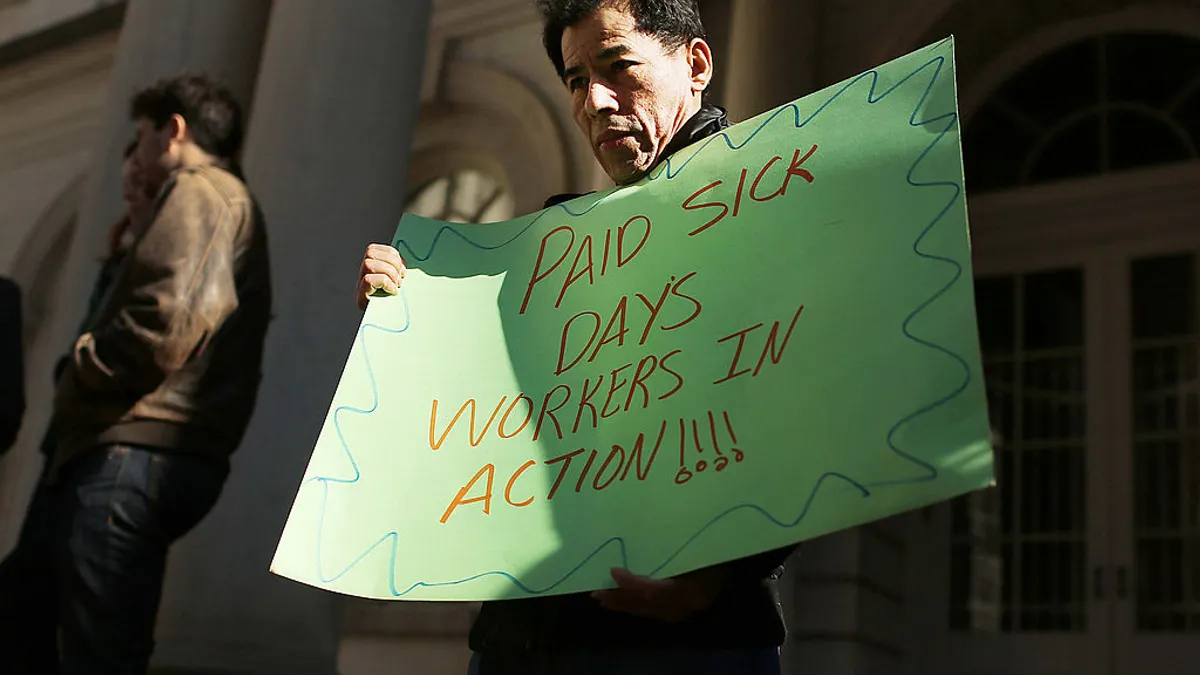
A July 10 report from TEAM Software found that while nearly 40% of workers said they’d taken a day off for mental health, only one in ten felt comfortable telling their manager the truth and getting a supportive response. Instead, many workers exaggerate physical symptoms or outright lie to avoid being judged or penalized for needing a break for stress or burnout.
“That silence often leads to secrecy,” the report states. “The result? A culture where fear, not trust, shapes how time off is requested.”

In the survey of 1,000 U.S. workers, 42% admitted they’d exaggerated physical illness to mask a mental health day. The pattern is especially pronounced among younger employees: about two-thirds of Gen Z workers and half of millennials said they’d used this tactic, while 22% of Gen Z respondents said they’d outright fabricated physical symptoms to protect themselves from stigma or backlash.
The research highlights a clear generational divide over mental health needs at work. While 86% of Gen Z employees reported experiencing stress or burnout that affected their performance in the past year, only 36% of baby boomers said the same. And over half of boomers — 55% — said they’ve never needed a mental health day at all, compared with just 14% of Gen Z workers.
“The data points to a cultural shift still in progress, where younger workers recognize psychological strain but don’t yet trust their workplace to treat it as valid,” the report found.
The hidden costs of pretending are showing up on the bottom line. Workers who can’t take adequate sick or mental health leave are more likely to experience burnout, turnover, and even physical health problems, the report says.

A third of workers said they struggled with brain fog, poor sleep, anxiety, and other physical symptoms due to overwork and lack of genuine rest. Notably, 35% reported working while sick — only to worsen their condition and end up missing even more work later.
“In the story these statistics tell, sick leave isn’t an employer-provided perk. It’s ultimately a structural necessity. It safeguards both personal health and business continuity,” according to the report. “Until clear, generous and stigma-free policies become the norm, the true cost of sick days will continue to surface not on timesheets but in the hidden debits of burnout, turnover and lost human potential.”
TEAM’s findings echo a growing push by workplace experts for stronger, stigma-free sick leave and mental health policies. The report suggests that when employees feel genuinely supported to take the time they need — whether for the flu or burnout — it actually saves companies money in the long run by lowering healthcare claims, boosting morale and keeping teams stable.
The call to action: employers must close the gap between “wellness perks” and day-to-day reality by normalizing mental health days, training managers to respond supportively, and making clear that protecting health — both physical and mental — is non-negotiable.
Until then, for many workers, the real story of their sick days will remain hidden — scribbled on the attendance sheet as the flu or a headache, when the real diagnosis is stress that no one feels safe enough to name out loud.
Originally reported by Carolyn Crist in Construction Dive.